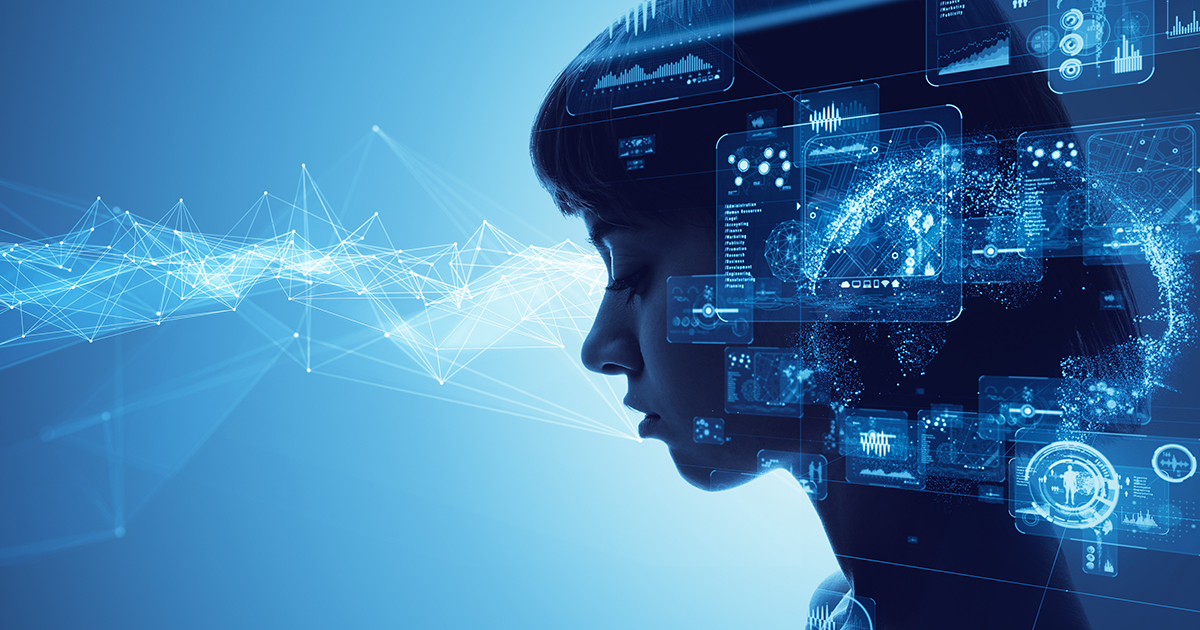
2021-07-29 09:00:00 Author: www.trustwave.com(查看原文) 阅读量:54 收藏
For several years now, artificial intelligence (AI) and machine learning (ML) have been all the buzz in the cybersecurity industry. Solutions like Security Orchestration, Automation and Response (SOAR) platforms, as well as other AI and ML-powered technologies, are often portrayed as a cybersecurity savior – able to completely protect organizations from threats and fully automate the cybersecurity function. Though AI and ML are powerful tools, they are not a panacea. As enterprise IT infrastructures become more complex and threats become more sophisticated, organizations will still need the help of skilled cybersecurity professionals. Though the role of the cybersecurity analyst may look different in the future than it does today, humans will remain an essential part of the cybersecurity puzzle.
The Promise of Artificial Intelligence
AI and ML-powered cybersecurity solutions are attractive to organizations for a variety of reasons. Enterprise IT infrastructures have become increasingly complex in recent years, and the attack surface has grown exponentially. The increasing digitization of business, the growing number of internet-connected devices used by employees, the widescale shift to multi-cloud environments, and the rise of remote work are all contributing to the difficult challenge of keeping an organization secure. With more endpoints to protect, a more distributed attack surface, and more avenues for threats to enter the organization, cybersecurity professionals have their hands full. It's estimated that around the world, we collectively have generated 44 zettabytes of data in the digital universe – that's 40 times more bytes of data than stars in the observable universe. That's a lot of data being to monitor, analyze and protect.
At the same time, cybersecurity threats continue to grow and are becoming increasingly sophisticated. Attackers are using AI technologies themselves to speed their attacks, make them more difficult to detect, and spread them further. By leveraging machine learning, cybercriminals are creating malware strains that are more intelligent and adaptable, making them more difficult to detect. We have even seen cases in the wild of cybercriminals using AI to create deep fake audio to make their Business Email Compromise (BEC) attacks more convincing. 2020 saw attacks on cloud services more than double, and ransomware continues to grow.
Amid this increasingly complex business landscape and the ever-growing number of sophisticated threats, there is a worldwide shortage of more than 4 million cybersecurity professionals. A full 70% of organizations report being impacted by the worker shortage. In the face of all this, it's no wonder that organizations are turning to AI as a means to augment their cybersecurity operations. Vendors selling AI and ML-powered cybersecurity solutions present them as a way to solve all of these challenges. AI solutions can automate many of the repetitive tasks a cybersecurity analyst performs daily. They can also analyze vast volumes of data quickly, look for anomalies that could indicate a threat, and in some cases, even initiate a response. However, the idea that AI solutions can replace the need for human cybersecurity teams simply is not true.
The Reality
AI and ML solutions are certainly a part of how we can provide strong security in a fast-evolving business and threat landscape, but they are only one part of the equation. Organizations still need skilled, human, cybersecurity professionals. AI technologies can automate predictable and repetitive tasks, but their level of success in identifying unknown threats and making decisions is dependent upon the quality of the data that is being fed into them and their ability to learn from previous decisions. Many systems today can use data analytics to detect anomalies in their environment, but they can't tell you if that anomaly is something good or something bad. They often cannot determine if the difference is caused by a security threat or is simply a random occurrence due to the unpredictability of human behaviors. Even though these technologies are advancing every day, there is still a lot of noise that is generated by AI and ML-powered solutions.
For that reason, organizations will still need human cybersecurity analysts involved in the threat-hunting and investigation process to analyze threat data, glean insights and make decisions on how to respond. They will continue to need cybersecurity professionals to help train these AI and ML-based platforms and ensure the data being fed into them is good, clean data from which the platform can learn and confidently operate. AI and ML solutions should be seen as an extension of an organization's cybersecurity team, augmenting and complementing the team by helping analysts identify threats more effectively, make better decisions and respond more quickly. Even with the most sophisticated solutions, there is still the need for human oversight, analysis and decision making.
AI and ML technologies continue to advance and are becoming better at predicting incidents, making decisions and responding to threats. As they continue to develop and become more sophisticated, it is entirely possible that the role of a cybersecurity analyst will look different than it does today, but it will not disappear entirely. Cybersecurity will be less focused on monitoring alerts on a screen, but organizations will still need people to perform investigations, contribute their professional insights and program, maintain and evolve the SOAR platform or other AI/ML solution so that it can continue to be effective in a highly dynamic environment.
Ultimately, the future is still bright for cybersecurity professionals. Sophisticated new technologies can help us keep pace with evolving threats and the challenges of securing increasingly complex IT infrastructures. AI will not replace the need for skilled cybersecurity analysts anytime soon, but it can enable us to perform our jobs better – and strengthen our defenses against attack.
如有侵权请联系:admin#unsafe.sh